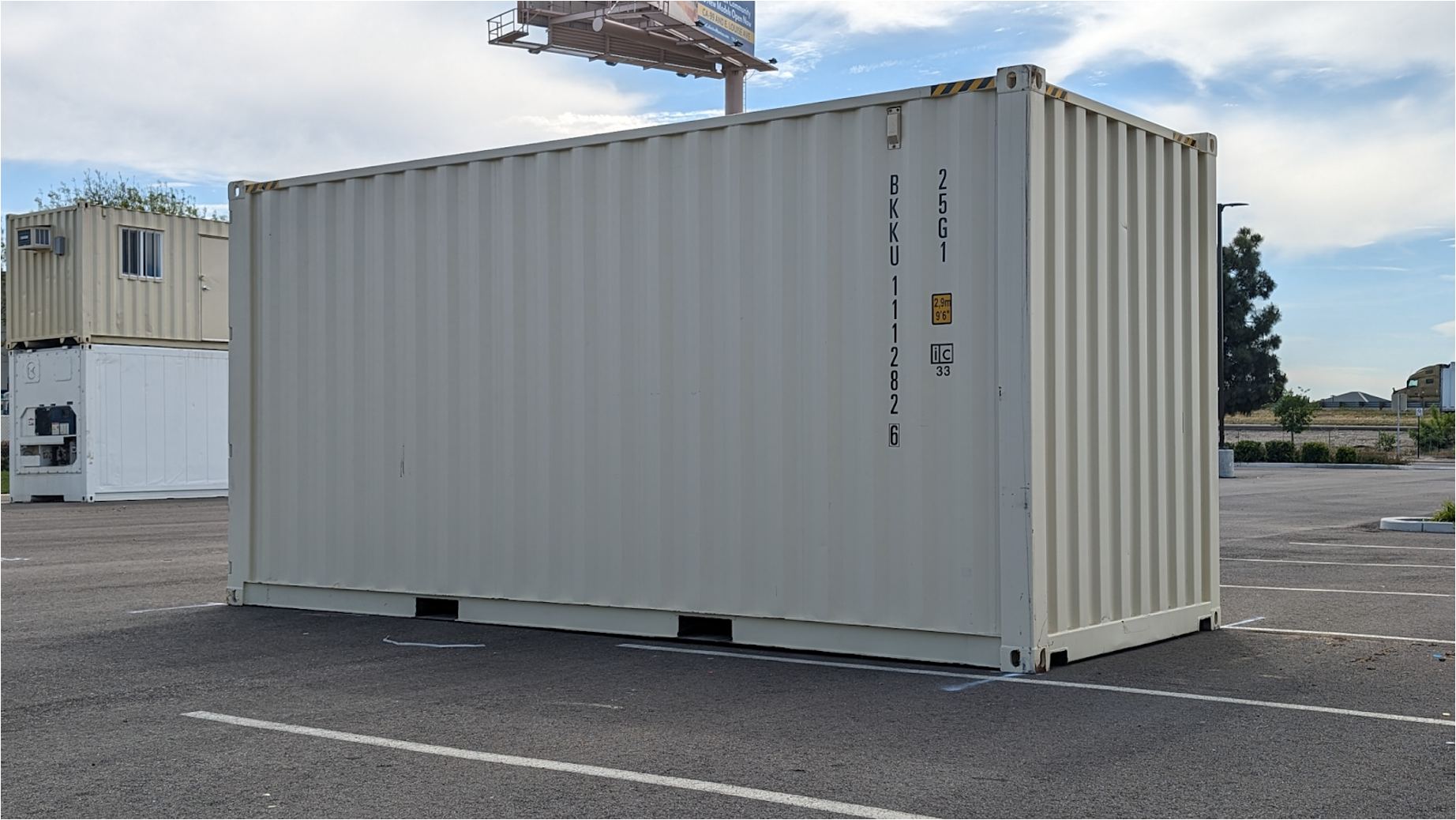Delaware Shipping Container Zoning Laws, Permits & Building Code Requirements
Get a quoteDelaware Shipping Container Zoning Law, Permit & Building Code Guide
Key Takeaways
- Delaware's zoning laws dictate where and how you can use shipping containers.
- You will need a permit to place a shipping container on your property even if it’s for temporary use.
- Building codes arrange for the safety and structural integrity of shipping containers.
- Reach out to your local authority to get guidance on the zoning regulations in your area.
- Choose Conexwest to take advantage of a wide range of shipping containers and customization options.
Shipping Container Zoning Laws, Permits, & Building Code Requirements In Delaware
Zoning Regulations
Zoning laws in Delaware dictate where shipping containers can be placed and how they can be used. Key considerations include:
- Usage Restrictions: Shipping containers may be permitted for temporary storage, construction sites, or as permanent structures, depending on the zoning classification of the property (residential, commercial, or industrial).
- Residential vs. Industrial Zones: Residential zones usually have stricter regulations regarding the use of shipping containers, while industrial zones allow more flexibility for container usage.
- Local Variations: Each municipality has its own zoning regulations. For example, some areas may require that containers be screened from view or impose size restrictions.
Permits
- Permit Requirements: Most municipalities in Delaware require a permit for both temporary and permanent placement of shipping containers. As such, you need to submit an application detailing the intended use of the container and its dimensions.
- Temporary Use Permits: If the container is used for temporary purposes (e.g., during construction), a less stringent permit may be required.
- Fees: Permit fees vary - for instance, Frederica charges a $25 fee for portable storage unit permits.
Building Codes
Building codes ensure that any structures made from shipping containers meet safety and structural integrity standards:
- Compliance with Codes: Shipping container homes must comply with the International Building Code (IBC) or International Residential Code (IRC), which cover aspects like structural integrity, fire safety, plumbing, and electrical systems.
- Inspections: The construction process may involve inspections to check compliance with building codes, especially if the container is being converted into a living space.
- Aesthetic Requirements: Regulations may dictate color schemes and architectural features to harmonize with local aesthetics, and may include requirements for landscaping or screening.
Note: If you plan to dispose of or recycle old shipping containers, Department of Natural Resources and Environmental Control (DNREC) regulations regarding waste management must be followed.
Conexwest, a leader in shipping and storage solutions based in Northern California, offers new, used, and refurbished containers from 10ft to 45ft, with fast delivery within 3-7 days and container fabrication options like adding shelves and locks. We serve over 10,000 customers nationwide, including prestigious clients like the U.S. Navy and Google. As an ISO 9001 and AWS-certified company, we ensure top quality and competitive pricing. |
Tips For Complying With Delaware’s Regulations

Consult with the experts at Conexwest to speed up these formalities
- Prepare Detailed Plans: When applying for permits, you need to submit comprehensive plans that include architectural drawings or site maps detailing the container's intended use, size, and placement on your property.
- Check Size Restrictions: Be aware of any size limitations imposed by local zoning laws. Some areas may restrict the dimensions of containers that can be placed on a property.
- Consider Setback Requirements: Verify any setback requirements that dictate how far the container must be from property lines and other structures.
- Explore Variance Options: If your desired location is not zoned for shipping container use, consider applying for a variance. This is a special permission that allows for deviations from standard zoning laws based on unique circumstances.
- Plan for Utility Connections: If your shipping container will be used as a residence or for business purposes, you must plan for proper connections to utilities such as water, electricity, and sewage, which may require additional permits.
- Document Everything: Keep thorough documentation of all communications with local authorities, permit applications, plans submitted, and inspections completed. This information can be vital in case of disputes or compliance checks.
Choose Conexwest For Your Shipping Container Needs

Conexwest is your go-to provider of shipping containers all over the US
We are dedicated to providing high-quality containers and exceptional customer service so that you have everything you need for your project. Here’s why you should choose us:
Extensive Selection of Containers
Our wide range of shipping containers includes standard, insulated, refrigerated, and modified options in various sizes from 10 to 45 feet. So, if you need a container for storage, office space, a pop-up restaurant, or anything else, we have the right solution for your requirements.
Quality Assurance
Each of our containers undergoes rigorous inspection so that they meet high standards of safety and durability. Thus, our new containers come with a ten-year warranty, while used cargo-worthy containers have a five-year warranty.
Customization Options
We provide extensive customization options. From adding windows and doors to installing HVAC systems and electrical packages, we can modify your container to suit your needs.
Expert Guidance on Compliance
We can provide guidance on meeting Delaware's zoning laws and building code requirements for shipping containers. Our team is knowledgeable about local regulations and will help you ensure your container is compliant with all necessary permits and codes.
Commitment to Customer Experience
Our dedicated team is here to assist you throughout the entire process - from selecting the right container to helping you comply with all local regulations. On top of that, we provide upfront and clear pricing with no hidden fees.
If you have any questions or need assistance, don't hesitate to reach out to our customer support team. We're here to help.
Frequently Asked Questions (FAQs)
- Do I need a permit for a temporary storage container?
Yes, in most cases, you will need a temporary use permit for a storage container so that it complies with local zoning laws and building codes. Check with your local zoning office for requirements in your area.
- What are the penalties for non-compliance?
Penalties for non-compliance with zoning laws and building codes may include fines, removal of the container, or legal action. It's essential to adhere to all regulations to avoid these consequences.
- What types of shipping containers can I use for residential purposes?
You can use various types of shipping containers for residential purposes, including standard cargo containers and modified units designed for living spaces. However, the use of these containers as homes must comply with local zoning laws and building codes. Some areas may require additional permits or modifications to meet safety standards.
- What are the aesthetic requirements for shipping containers?
Certain areas in Delaware may have aesthetic requirements that dictate how shipping containers should look, such as restrictions on color schemes, landscaping around the container, and how well it integrates with the surrounding environment.
- Are containers of Conexwest new or used?
We provide new, used, and refurbished containers. Our used containers are cargo-worthy and have undergone rigorous inspections so they meet high standards of safety and durability. Moreover, our refurbished options are reinforced to make them as good as new.
